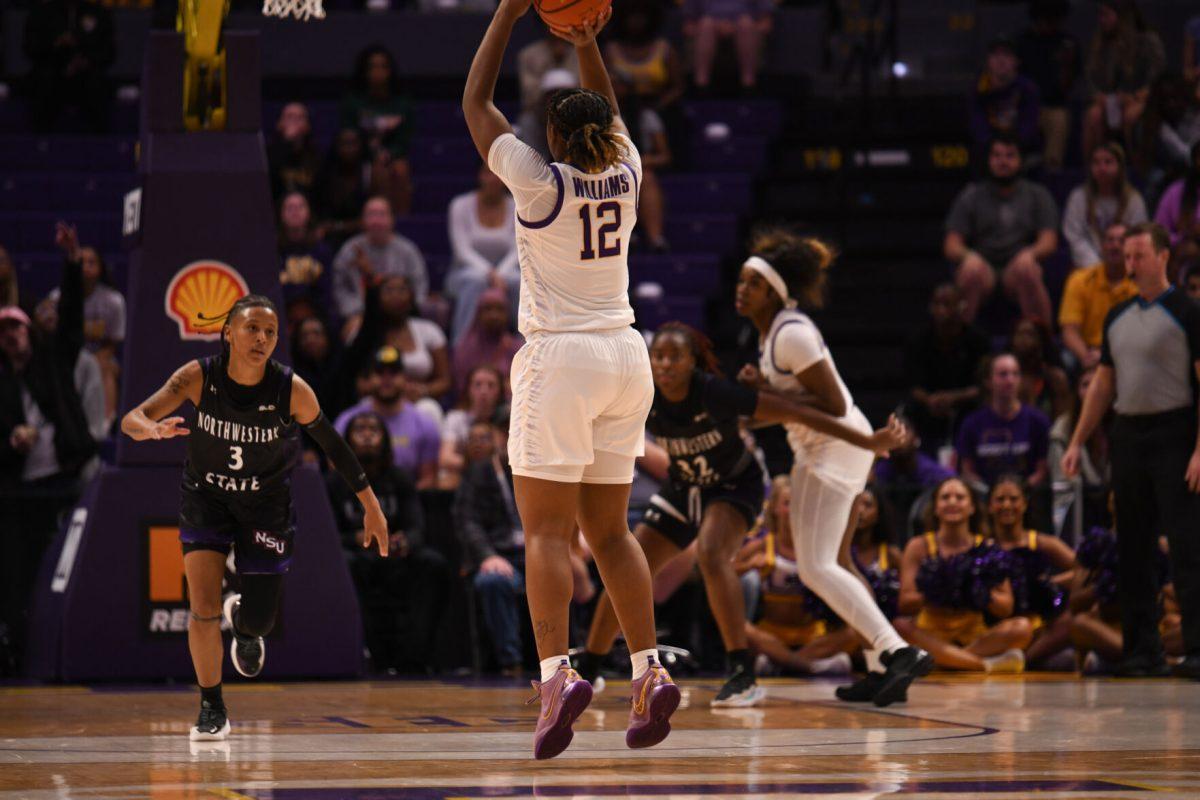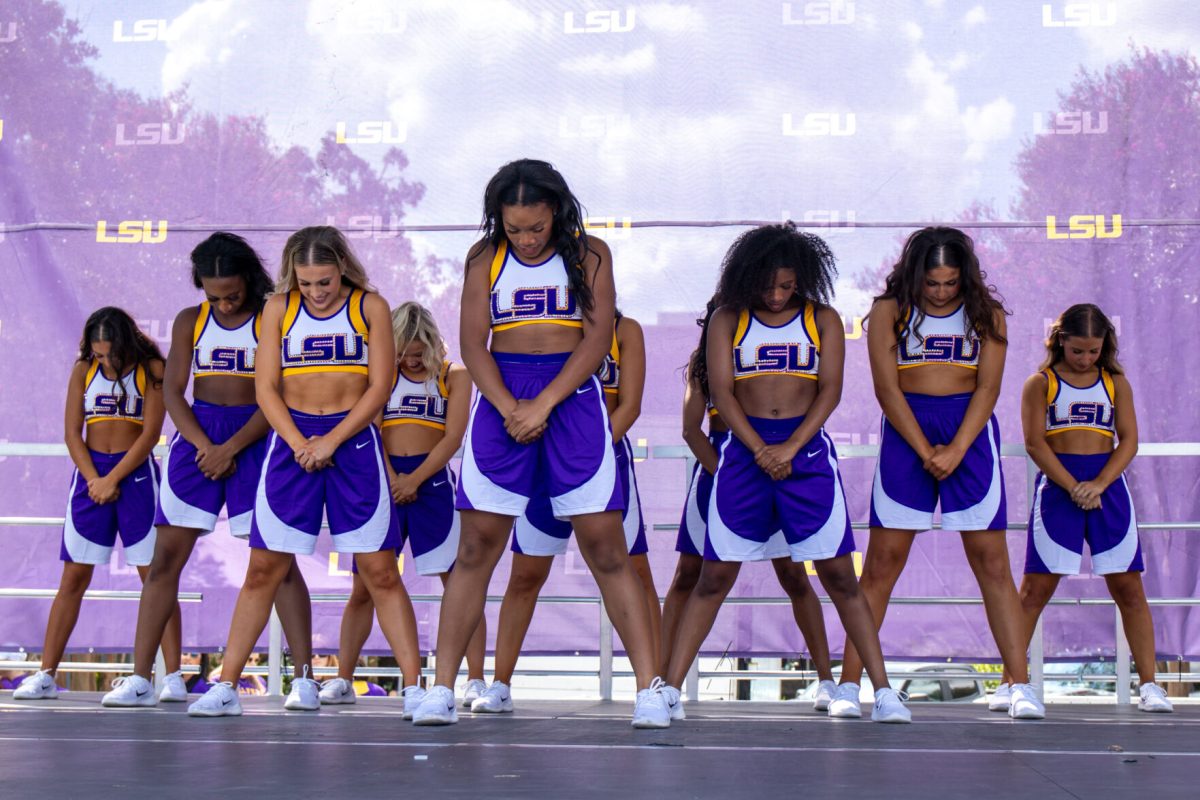Only two teams remained in the Chapel Hill regional at the end of Sunday’s elimination matchup.
After battling tooth and nail to stay alive, one of those teams is LSU.
With the team’s 13-6 win over Wofford, the Tigers’ season and their quest to repeat as national champions continues.
After the first inning, LSU faced a 5-0 deficit.
It didn’t falter, just like it didn’t last year during its rollercoaster run to the national title, or down the stretch this year as it fought out of the NCAA Tournament bubble with an outstanding SEC Tournament run.
“We’ve been punched in the gut 50 times, and they know how to get back up,” head coach Jay Johnson said.
Instead, the Tigers fought back.
Offensively, they didn’t let up, despite the troubles that had plagued them in the NCAA Tournament; they came up with just six runs across their first two games and looked en route to a similar performance.
They kept chipping away until they’d overtaken the lead, and they weren’t complacent even then, as they added more to leave no doubt.
As the offense heated up, it was sophomore pitcher Griffin Herring who kept the game within arm’s reach after he came in midway through the first inning.
“Everybody knows how important every game, every inning, every pitch is this time of year,” Herring said.
The second team all-SEC reliever, who’s expected to get major league looks this offseason, was dominant over 6.1 innings with seven strikeouts and only one earned run.
“I trust him with my life,” Johnson said of Herring. “He delivered in a very big way.”
His steadiness was pivotal, even if the large workload he received means he’ll now most likely be unavailable for LSU’s evening game against North Carolina, as well as for a potential second game on Monday.
Thanks to the win, LSU will advance to a rematch with UNC at 5 p.m on Sunday.
The Tar Heels prevailed over LSU on Saturday to send the Tigers to the losers’ bracket.
If LSU wins against UNC on Sunday, it will force a win-or-go-home game on Monday between the Tigers and Tar Heels for the right to advance and host the super regionals.
LSU’s pitching had its hands full with Wofford
With ace pitchers Luke Holman and Gage Jump starting LSU’s first two games of the regional, the Tigers had to turn to other options in a starting rotation that they’ve had trouble nailing down and finding consistency from.
Not only did LSU have to look outside its top throwers, the team also had to be conservative with its pitchers knowing that, with a win, it could be playing again Sunday evening and potentially even on Monday.
That made for a precarious situation in which Johnson had to be cautious and precise with his pitchers’ usage. In the end, senior Nate Ackenhausen got the call to be the starter.
Last year in the super regionals, Ackenhausen was the hero in a must-win game three against Tennessee where he came up with seven strikeouts and allowed zero runs.
Despite his big-game experience, Wofford jumped on Ackenhausen from the start, amassing five runs in the first inning.
Wofford’s offense has done that to many opponents this year. As a team, the Terriers rank No. 2 in the country in batting average, and their combination of speed up and down the lineup and unique offensive approach make them difficult to keep off the board.
Despite that, Wofford came into the postseason with questions about how its offense would perform against legitimate opponents after a less-than-challenging schedule in the Southern Conference.
During the postseason, the Terriers certainly answered those criticisms, with the team under first-year head coach J.J. Edwards contending tightly with LSU in both of their matchups in the Chapel Hill regional.
After Ackenhausen was pulled, Herring came in and provided much-needed dependability.
When his day was finally over, after winning an appeal with Johnson to return for the seventh inning, Herring had turned the game’s momentum entirely.
The relievers that followed him kept Wofford’s vaunted offense at bay, as well, completing what became a dominant win.
LSU’s offense answered back
LSU wasn’t the only team that was forced to turn to one of its less steady options at pitcher.
Pitching was already not Wofford’s strength – it ranks No. 109 in the country in ERA as a team – but the team, like LSU, had used its two best pitchers in its first two games of the NCAA Tournament.
Wofford countered Ackenhausen with freshman Camden Wicker in what was just his tenth start of the year.
Wicker did an admirable job against LSU, hanging in there for four innings with six strikeouts and baffling LSU with his breaking ball.
Still, LSU began chipping away at the lead with three runs across the second and fourth innings. The Tigers seemed to adapt to the breaking balls that they’d been ill-equipped to deal with early on.
In the fifth, with Wicker now done for the day, the Tigers took advantage of the new pitcher and tied the game at 6-6, with five straight batters reaching base with two outs.
LSU kept it going, with multiple runs in the seventh, eighth and ninth innings.
When all was said and done, LSU had eight different players with multiple hits. The team totaled 21 hits, its second-most of the season, behind only the 27 it had against Virginia Military Institute during the opening weekend.












